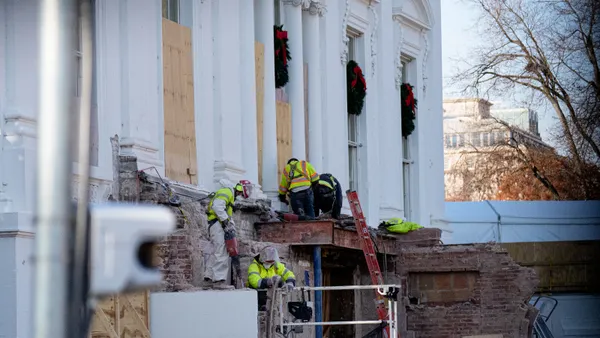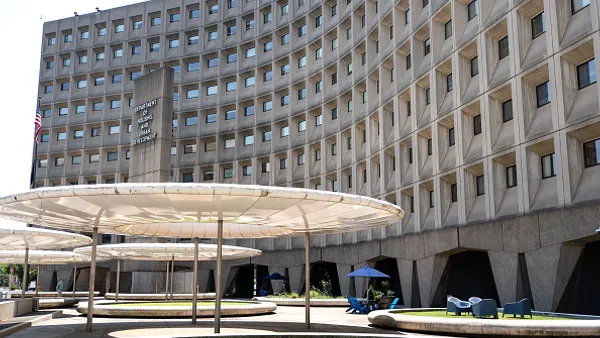Dive Brief:
- Developer HabeRae has announced plans to build a 10-home, tiny house community in downtown Reno, NV, the Reno Gazette-Journal reported.
- HabeRae said the 650-square-foot to 684-square-foot, two-bedroom, one-bath homes, which would be centered around green space and include a one-car detached garage, will come with a price tag of about $225,000, about half the current cost of a downtown single-family home.
- Although HabeRae said it plans to start construction in December and have the homes ready by June 2017, it added that current Reno city ordinances must be changed to allow the small, permanent structures.
Dive Insight:
HabeRae owners Kelly Rae and Pamela Haberman said they once lived in a tiny house and hope to take advantage of the trend toward simpler living. The popularity of tiny houses is sweeping the U.S., both as a way of living off the grid, but also as a possible housing solution for urban homebuyers who can’t afford, or don’t want, a larger, more expensive home.
Other U.S. tiny house developments are in the planning stages, including one in Greenfield, MA. Once the city approves the necessary accessory dwelling ordinance, and the town expresses adequate interest, developers said they would build a seven-home community on a 1-acre Greenfield site. The first two houses in the Citizens Tiny House Experiment, a development in Cleveland's ecoVillage, were recently completed as well. One home will go up for sale in September, while the other will start hosting short rental stays immediately so that community members can experience tiny house living.
Other tiny house developments are geared toward giving low-income or homeless individuals a shot at either affordable homeownership or rentals, while some will provide no-charge housing for the area's homeless. The Savannah-Chatham Homeless Authority in Savannah, GA, recently bought a $208,000 piece of land near active homeless camps and said it will build 72 tiny houses there. Of the area's homeless population, 240 veterans will be given preference in entering a lottery to determine who will live in the homes. However, in another case, a Tallahassee developer has met resistance in his efforts to create an $8 million, low-income tiny house development. Neighbors said they were concerned about potential crime that low-income residents might bring to the area.
The biggest obstacle for tiny house developers and builders, however, has proven to be zoning regulations. Washington, DC, recently changed its accessory dwelling unit regulations to allow homeowners in District suburbs to build tiny houses in their backyards. In another major tiny-house zoning milestone, officials in Tuscon's Pima County, AZ, announced their intentions to allow tiny houses with a foundation to be built anywhere that single-family homes are allowed.













